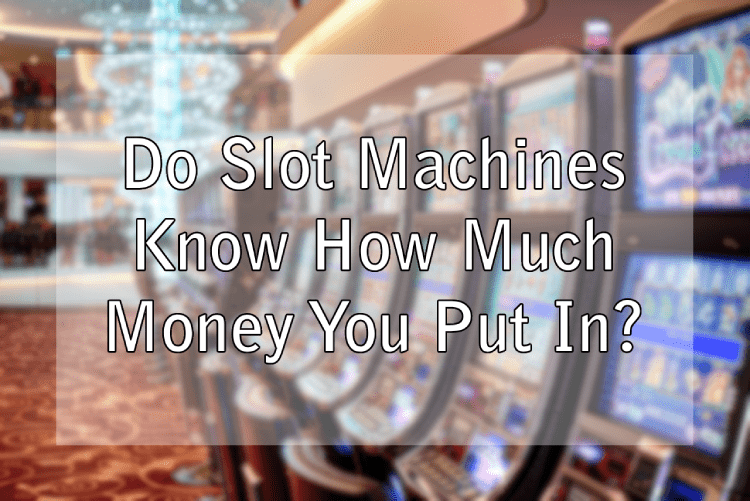
Slot machines are known for their simplicity. However, a common question that piques the interest of many casino enthusiasts is whether the machine knows how much money you put in and whether the amount of money you put in affects your chances of winning. This article aims to shed light on this very topic.
Slot machines do know the amount of money being inserted into the machine in order to be able to calculate the correct payout amount if a player lands a win.
For example, if you land a winning combination that awards a 5x your stake payout, then the slot needs to know what the stake was to pay out the right amount.
Does The Amount of Money You Put In Better Your Odds?
Despite the common belief, the amount of money you put into a slot machine does not directly impact your odds of winning.
Modern slot machines are equipped with Random Number Generators (RNGs) to generate random and unpredictable outcomes. The RNG, contrary to popular belief, does not take the wager into account when generating outcomes.
The RNG generates random number sequences at extremely high rates even when the slot is not in use. Each sequence translates into a random combination of symbols on the reels. The sequence generated when the Spin button is hit is the one used to determine the outcome for that round.
So, if the RNG is constantly generating potential outcomes even when no one is playing, the amount of money put into the machine doesn't affect its function. The RNG, in essence, guarantees the randomness of the game's outcome, making each spin an independent event.
The chances of landing a win on a given slot machine are the same on every spin, regardless of the bet amount.
Do Slot Machines Remember What You've Won?
Slots are entirely games of chance, with outcomes determined by the RNG. These algorithms do not have a memory of previous spins or payouts. Each spin is independent, and the RNG ensures the results' randomness. Therefore, whether you have previously won or lost on a particular machine does not affect the outcome of future spins.
Many players fall prey to the gambler's fallacy - the belief that past results influence future outcomes in independent events. For example, if a player believes that a slot machine that has not paid out in a while is 'due' for a payout. Some players also believe the opposite, that if a slot has just paid out, then it won't pay out for a while, which is also false.
The truth is that each spin on a slot machine has the same chance of being a win, regardless of previous results.
Should You Change Slot Machines After Winning?
The decision to switch slot machines after a win is entirely personal and should not be influenced by superstitions or fallacies. As explained earlier, each spin is an independent event, and your chances of winning remain the same, irrespective of previous wins or losses. So, switching to a different slot machine to play the same game will not change your chances of winning.
Changing to a different slot game entirely is a different scenario. Different slot games can have different Return To Player (RTP) rates, hit rates, volatility ratings, and more.
So, changing slot machine to a different slot game entirely can result in playing with a different chance of winning, but switching to a different machine and playing the same game does not.
Conclusion
Slot games are random games of chance that operate using an RNG. The RNG doesn't consider the amount of money you put into the slot machine to generate outcomes. The slot uses this information only for calculating the correct payout amounts if you win.
Regardless of the amount of money you put into a slot machine, it's essential to remember to gamble responsibly. Set a budget and stick to it.
